
Berlin: The Heartbeat of History and Modernity
Berlin, the capital of Germany, is a city that seamlessly blends the past and present. Known for its rich history, Berlin offers a deep dive into significant events that shaped the world. From the remnants of the Berlin Wall to the grandeur of Brandenburg Gate, the city stands as a testament to resilience and unity. Visitors can explore the numerous museums on Museum Island, each telling a unique story. The Pergamon Museum, in particular, is a treasure trove of ancient artifacts. For those interested in more recent history, the Topography of Terror provides a sobering insight into the city's darker times. Berlin is not just about history; it is also a vibrant hub of art, culture, and nightlife. The East Side Gallery, a stretch of the Berlin Wall adorned with murals, showcases the city's creative spirit. The city's numerous parks, like Tiergarten and Tempelhofer Feld, offer a serene escape from the urban hustle. And when the sun sets, Berlin's nightlife comes alive with world-renowned clubs and bars. Food enthusiasts will find Berlin a culinary paradise, with its diverse offerings ranging from traditional German sausages to international cuisines. Don't miss trying a Berliner, a local doughnut-like pastry that is a sweet delight. In Berlin, there's something for everyone, whether you're a history buff, art lover, or partygoer. The city's unique charm and dynamic energy make it a must-visit destination.
Local tips in Berlin
- Purchase a Berlin WelcomeCard for unlimited travel on public transport and discounts on attractions.
- Visit the Reichstag building early in the morning or late in the evening to avoid long queues.
- Explore Berlin by bike; the city is very bike-friendly with dedicated lanes.
- Try the local street food, especially Currywurst and Döner Kebab.
- Take a stroll along the Spree River; it's a relaxing way to see the city.
Neighbourhoods in Berlin
Berlin: The Heartbeat of History and Modernity
Berlin, the capital of Germany, is a city that seamlessly blends the past and present. Known for its rich history, Berlin offers a deep dive into significant events that shaped the world. From the remnants of the Berlin Wall to the grandeur of Brandenburg Gate, the city stands as a testament to resilience and unity. Visitors can explore the numerous museums on Museum Island, each telling a unique story. The Pergamon Museum, in particular, is a treasure trove of ancient artifacts. For those interested in more recent history, the Topography of Terror provides a sobering insight into the city's darker times. Berlin is not just about history; it is also a vibrant hub of art, culture, and nightlife. The East Side Gallery, a stretch of the Berlin Wall adorned with murals, showcases the city's creative spirit. The city's numerous parks, like Tiergarten and Tempelhofer Feld, offer a serene escape from the urban hustle. And when the sun sets, Berlin's nightlife comes alive with world-renowned clubs and bars. Food enthusiasts will find Berlin a culinary paradise, with its diverse offerings ranging from traditional German sausages to international cuisines. Don't miss trying a Berliner, a local doughnut-like pastry that is a sweet delight. In Berlin, there's something for everyone, whether you're a history buff, art lover, or partygoer. The city's unique charm and dynamic energy make it a must-visit destination.
When is the best time to go to Berlin?
Iconic landmarks you can’t miss
Alexanderplatz
Experience the heart of Berlin at Alexanderplatz: a historic square brimming with iconic landmarks, diverse shopping, and a vibrant atmosphere, all in the city's bustling center.
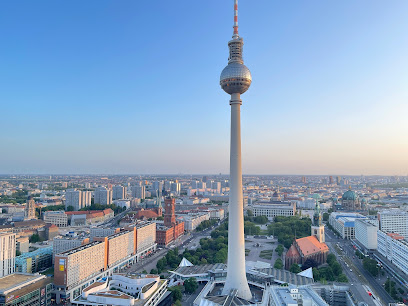
Brandenburg Gate
Experience the heart of Berlin at the Brandenburg Gate: a symbol of unity, peace, and German history, standing tall on Pariser Platz, easily accessible and unforgettable.
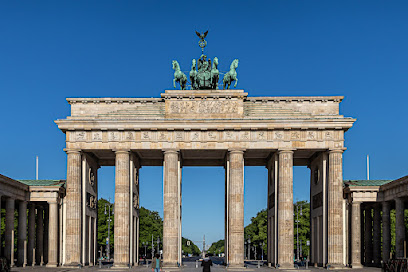
Checkpoint Charlie
Relive Cold War history at Checkpoint Charlie, the iconic Berlin Wall crossing, and explore the stories of division, espionage, and daring escapes that shaped the city.
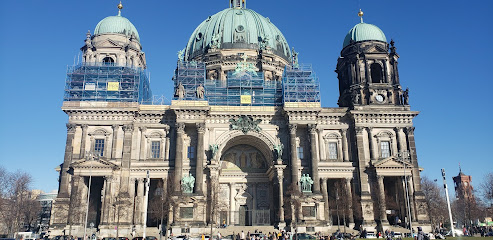
Potsdamer Platz
Experience Berlin's vibrant heart at Potsdamer Platz: a modern hub rising from historical ruins, offering stunning architecture, diverse entertainment, and cultural landmarks.
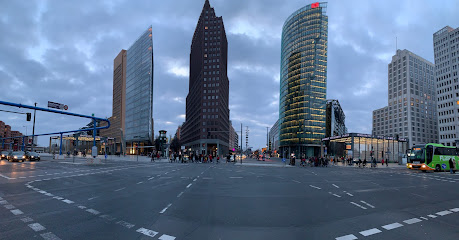
East Side Gallery
Explore the East Side Gallery, the world's largest open-air art gallery on the longest remaining section of the Berlin Wall, a symbol of freedom and artistic expression in Berlin.
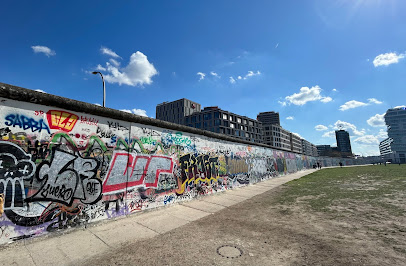
Berliner Fernsehturm
Ascend to Berlin's highest point for breathtaking panoramic views and a glimpse into the city's captivating history, a symbol of reunification and enduring spirit.
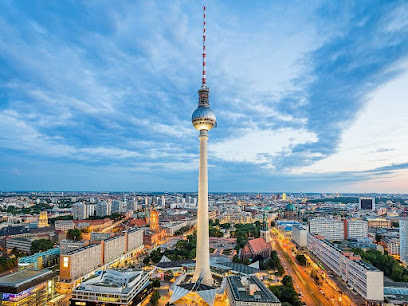
Berlin Wall Memorial
Explore the Berlin Wall Memorial on Bernauer Strasse: a poignant reminder of division and a symbol of reunification, offering a powerful glimpse into Cold War history.
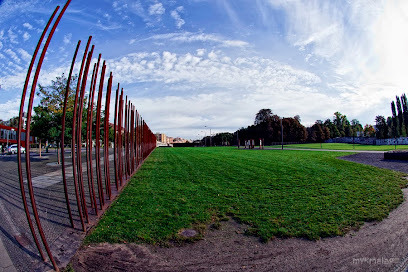
Berlin Cathedral
Explore Berlin Cathedral: A majestic landmark with a turbulent history, offering stunning architecture, panoramic views, and a glimpse into the Hohenzollern dynasty's legacy on Museum Island.
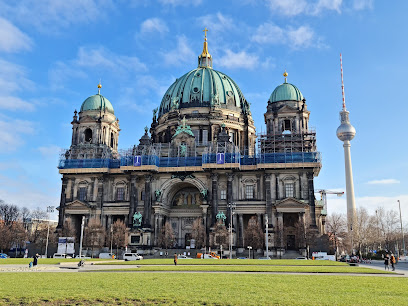
Victory Column
Ascend Berlin's iconic Victory Column for panoramic city views and a glimpse into German history, crowned by the gleaming 'Goldelse' statue in the heart of Tiergarten.
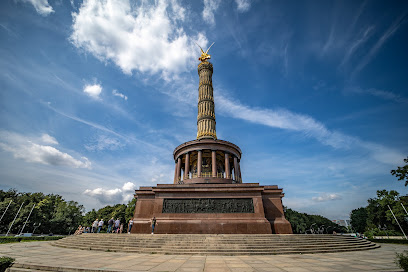
Charlottenburg Palace
Explore Berlin's largest palace, a stunning baroque complex with lavish state rooms, exquisite art collections, and tranquil gardens, reflecting centuries of Prussian history.
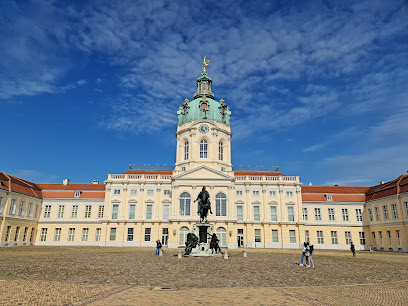
German Historical Museum
Explore the depths of Germany's history at the German Historical Museum, where centuries of culture and heritage come to life in captivating exhibits.
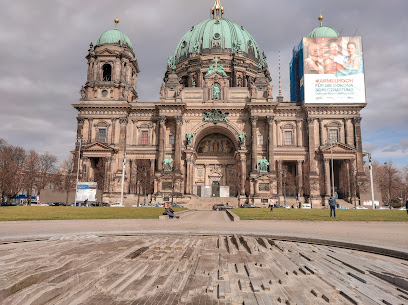
Lustgarten
Discover Berlin's Lustgarten: A historic park on Museum Island offering tranquility amidst iconic landmarks, reflecting centuries of Berlin's vibrant history and cultural evolution.
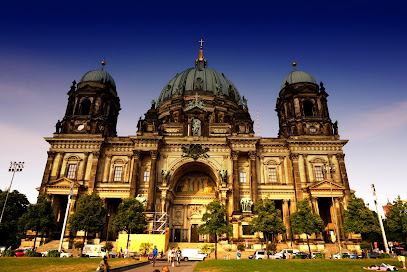
Reichstag Building
Explore the Reichstag Building in Berlin: a symbol of German history, democracy, and architectural innovation, offering panoramic views and a glimpse into the heart of German politics.

Humboldt Forum
Explore world cultures and Berlin's global connections at the Humboldt Forum, a dynamic museum and cultural hub in the heart of the city, inspired by the Humboldt brothers.
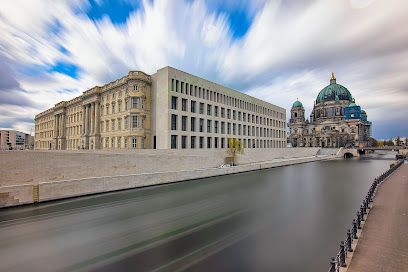
World Time Clock
A landmark in the heart of Berlin's Alexanderplatz, the World Time Clock is a symbol of unity, displaying the time in 148 cities worldwide and offering a glimpse into the city's vibrant history.
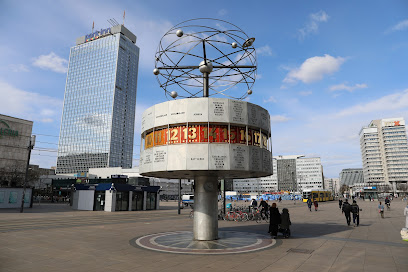
Unmissable attractions to see
Alexanderplatz
Explore Alexanderplatz, Berlin's historical plaza, where vibrant culture, shopping, and iconic landmarks converge in the heart of Germany's capital city.
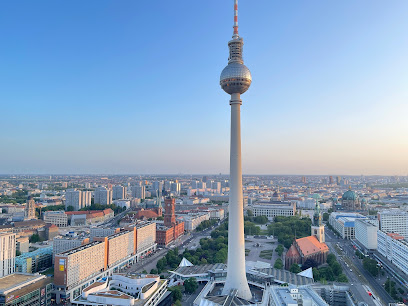
Berlin Zoological Garden
Explore a world of wildlife at Germany's oldest zoo, right in the heart of Berlin! Home to over 20,000 animals.

Berlin TV Tower
Experience breathtaking panoramic views of Berlin from the iconic TV Tower, Germany's tallest structure and a symbol of the city.
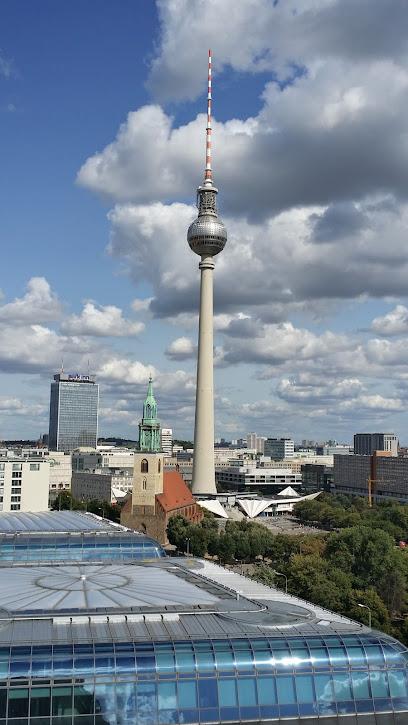
Berlin Cathedral
Explore Berlin's iconic cathedral: a majestic blend of history, architecture, and panoramic views on Museum Island. A must-see landmark!
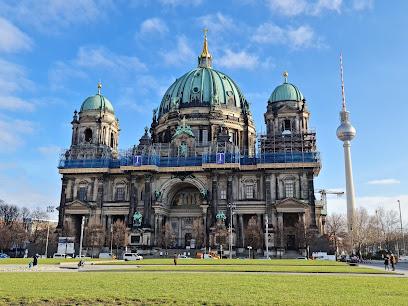
Olympiastadion Berlin
Explore Berlin's iconic Olympiastadion, a historic landmark transformed into a world-class sports and entertainment venue.
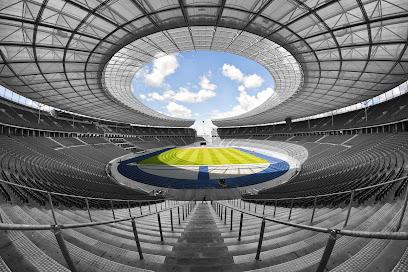
Topography of Terror
Explore the chilling history of Nazi Germany's terror regime at this important Berlin memorial and documentation center.
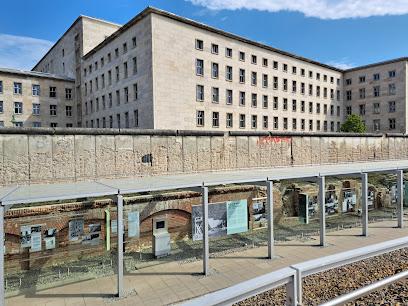
Sanssouci Park
Discover Sanssouci Park in Potsdam: A UNESCO World Heritage site with stunning palaces, gardens, and Prussian history. Free entry to the park grounds!
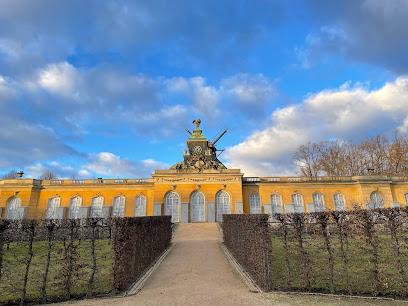
Uber Arena
Experience world-class sports and entertainment at Berlin's state-of-the-art Uber Arena, a premier venue for unforgettable events.
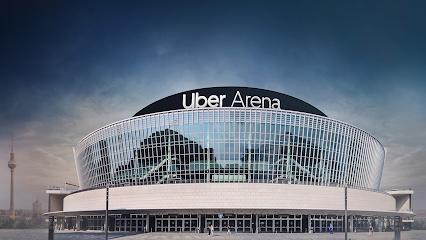
Pergamonmuseum
Explore ancient wonders at Berlin's Pergamon Museum, home to the Ishtar Gate, Pergamon Altar, and a vast collection of historical art.
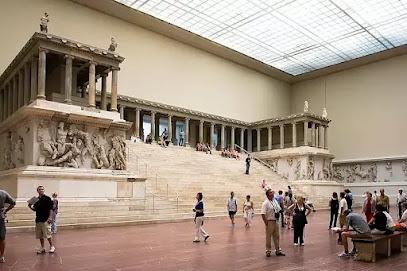
Charlottenburg Palace
Explore Berlin's largest palace: a journey through Prussian royalty, Baroque splendor, and tranquil gardens. A must-see landmark!

Sanssouci Palace
Visit Sanssouci Palace in Potsdam, a UNESCO World Heritage Site, and explore Frederick the Great's tranquil summer retreat and its stunning parkland.
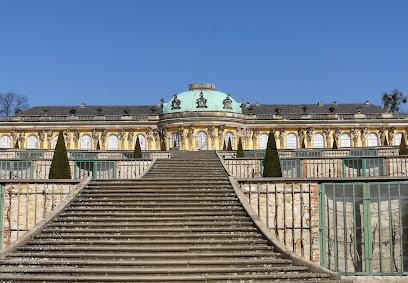
Tiergarten
Explore Berlin's iconic urban oasis: history, nature, and monuments await in the heart of the city at Tiergarten.

German Museum of Technology
Explore the evolution of technology at Berlin's German Museum of Technology, from locomotives to aviation, in a historical setting.
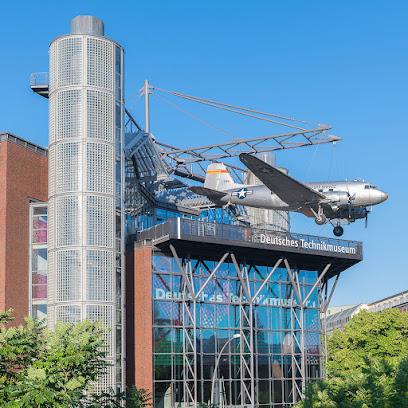
Kaiser Wilhelm Memorial Church
A poignant symbol of Berlin's resilience, the Kaiser Wilhelm Memorial Church stands as a powerful reminder of war and a beacon for peace.
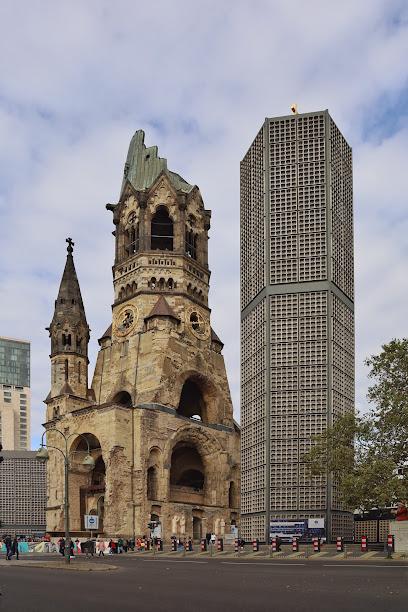
DDR Museum
Experience daily life in the former East Germany through interactive exhibits at Berlin's unique and engaging DDR Museum.
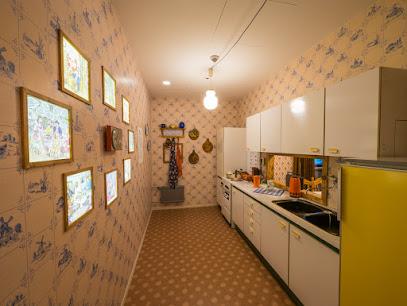
Essential places to dine
Restaurant Maximilians Berlin
Experience authentic Bavarian cuisine at Restaurant Maximilians in Berlin's Mitte district—where every meal is a celebration of flavor.
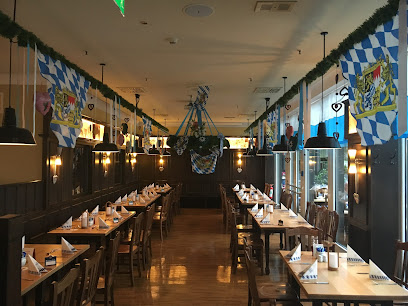
Dreh-Restaurant Sphere im Berliner Fernsehturm
Dine at Berlin's iconic Fernsehturm while enjoying panoramic views and exquisite German cuisine in a modern European setting.
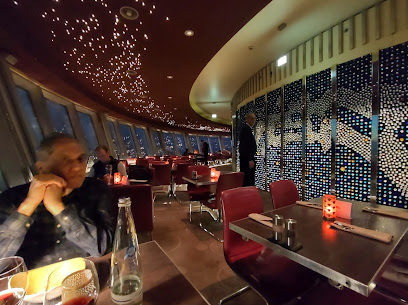
Dicke Wirtin
Experience authentic German cuisine at Dicke Wirtin in Berlin's Charlottenburg district – where tradition meets flavor.
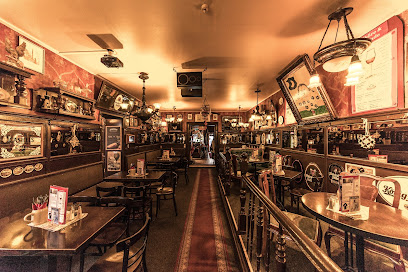
Nante-Eck
Experience authentic German flavors at Nante-Eck, where tradition meets taste in the heart of Berlin.
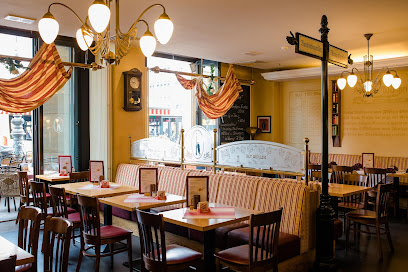
Zur Gerichtslaube
Discover traditional German flavors at Zur Gerichtslaube, a cozy restaurant with a delightful beer garden in the heart of Berlin.
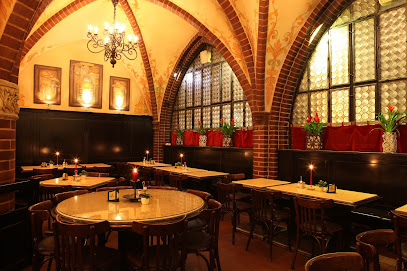
A Mano
Experience authentic Italian cuisine and fresh seafood at A Mano in Berlin's Friedrichshain-Kreuzberg district.
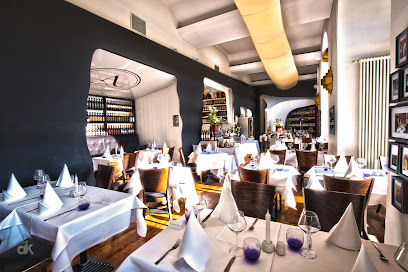
NENI Berlin
Discover NENI Berlin - A Mediterranean haven serving Israeli-inspired dishes with vibrant flavors in an inviting atmosphere.
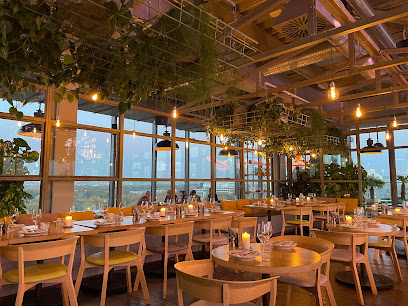
Mutter Hoppe
Experience authentic German cuisine at Mutter Hoppe - a culinary gem nestled in Berlin's vibrant Mitte district.
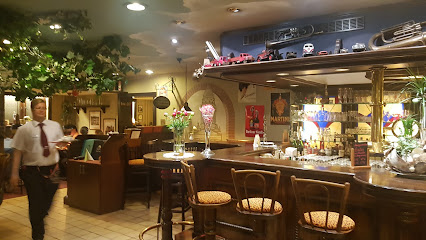
Elefant
Experience authentic German cuisine at Elefant in Berlin's Tempelhof-Schöneberg - where tradition meets flavor.
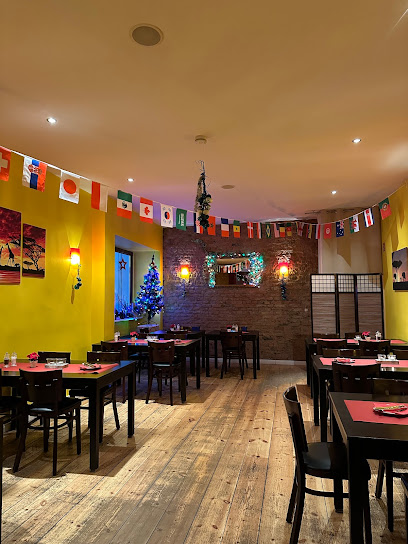
Umami
Experience the vibrant essence of Asian cuisine at Umami in Berlin's Friedrichshain-Kreuzberg district.
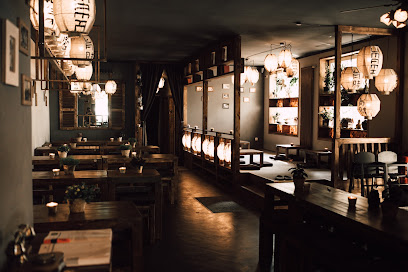
Zur letzten Instanz
Experience authentic German cuisine at Zur letzten Instanz - Berlin's oldest restaurant with a rich history and delightful beer garden.
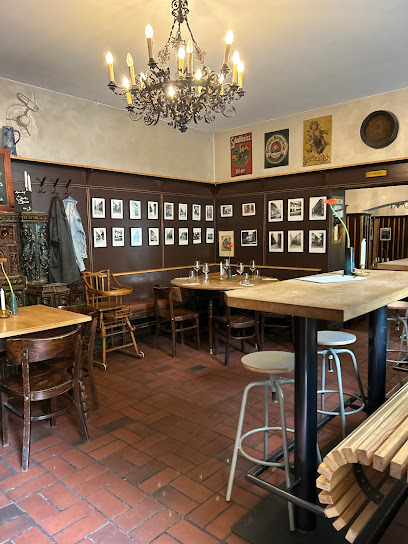
Alt-Berliner Gasthaus Julchen Hoppe
Savor traditional German dishes in the charming ambiance of Alt-Berliner Gasthaus Julchen Hoppe's historic setting.
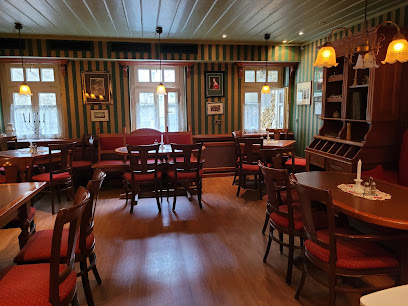
Grill Royal
Experience exceptional steaks and vibrant ambiance at Grill Royal in Berlin’s Mitte district.
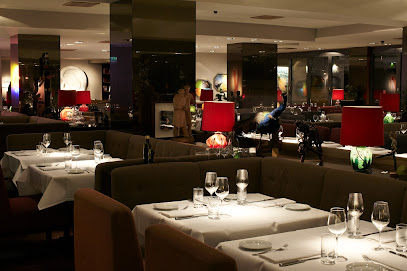
Katz Orange
Discover Katz Orange in Berlin - where eclectic flavors meet fine German dining in an inviting atmosphere.
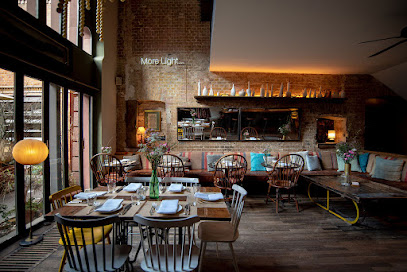
Restaurant Marjellchen
Experience authentic German cuisine at Restaurant Marjellchen in Berlin - where tradition meets flavor in every dish.
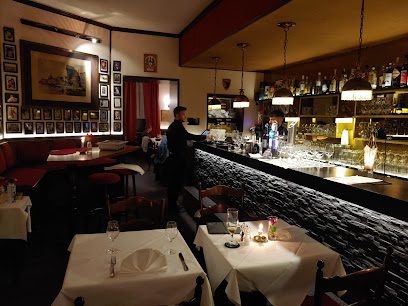
Markets, malls and hidden boutiques
Mall of Berlin
Experience shopping bliss at the Mall of Berlin, featuring over 300 stores, diverse dining options, and exciting entertainment in the heart of the city.
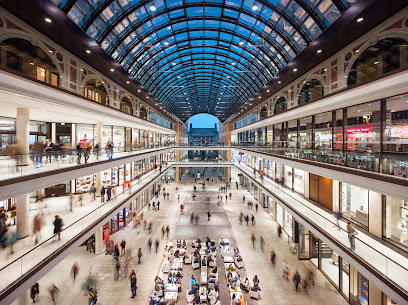
Elbenwald
Discover Elbenwald in Berlin, a unique gift shop offering a treasure trove of pop culture merchandise, clothing, and toys for all ages.
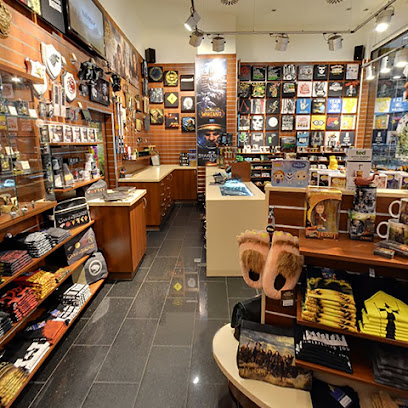
Voo Store
Explore Voo Store in Berlin: Where Fashion Meets a Cozy Café Experience in the Heart of Friedrichshain-Kreuzberg.
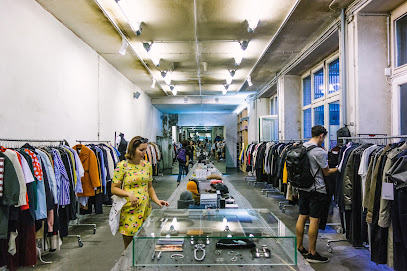
AMPELMANN shop in the Hackescher Markt
Discover unique Berlin souvenirs and gifts at the AMPELMANN shop in Hackescher Markt, a must-visit for every tourist.
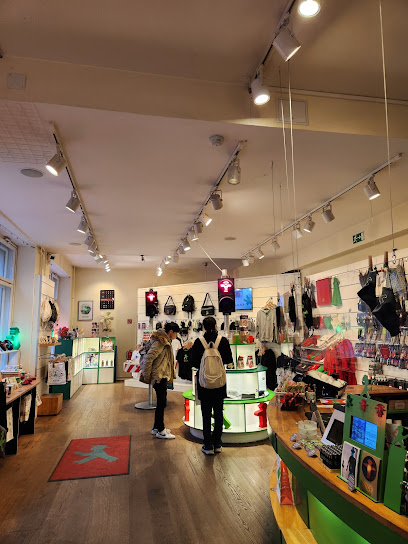
BERLIN STORE
Explore the charm of Berlin through unique gifts and souvenirs at the Berlin Store, located on Unter den Linden.
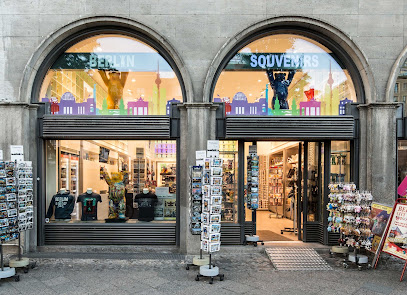
Pick'nWeight - Vintage Kilo Store
Explore the vintage fashion paradise of Berlin at Pick'nWeight - Vintage Kilo Store, where unique styles meet sustainable shopping.
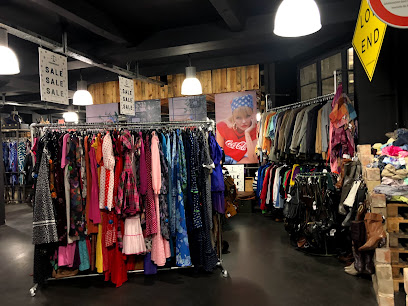
I LOVE BERLIN - MUDDASTADT GmbH
Discover the essence of Berlin at I LOVE BERLIN - your one-stop shop for souvenirs and unique gifts in the heart of the city.
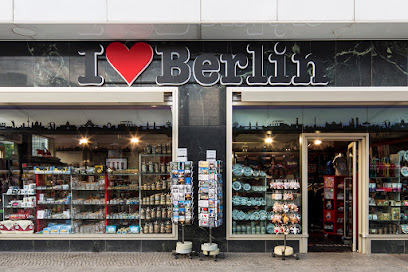
Pauls Boutique/Berlin
Explore Paul’s Boutique in Berlin for unique vintage clothing and sustainable fashion treasures. A must-visit thrift store in the heart of Pankow.
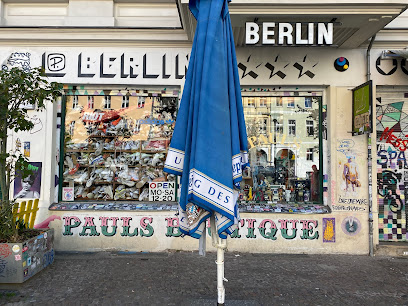
I love Berlin
Explore 'I Love Berlin' for unique souvenirs and gifts that embody the vibrant culture and spirit of Berlin, located in the heart of the city.
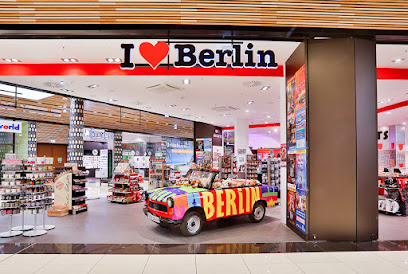
Soul Objects
Explore the artistic treasures of Berlin at Soul Objects, your go-to destination for unique gifts, art, and handcrafted treasures.
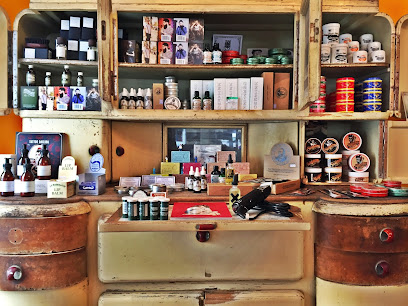
Kauf Dich Glücklich Mode
Discover unique fashion at Kauf Dich Glücklich Mode, a stylish clothing store in Berlin's Mitte district, where creativity meets contemporary style.
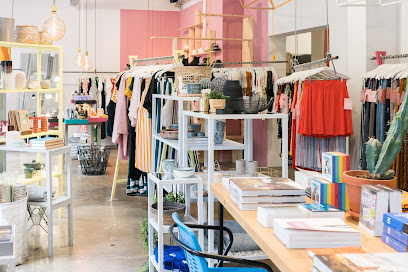
The Store X Berlin
Discover The Store X Berlin, a unique cultural center blending art, fashion, and café culture in the heart of the city.
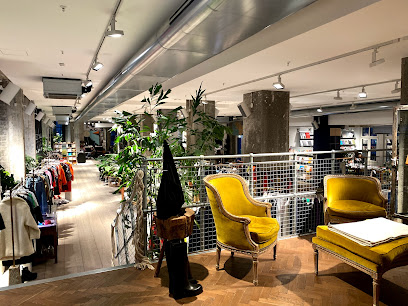
Andreas Murkudis
Explore Andreas Murkudis in Berlin - a chic clothing store offering curated fashion that reflects contemporary design and unique style.
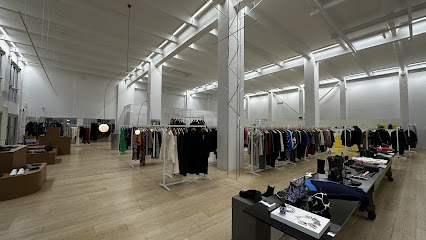
BERLIN Store - MUDDASTADT GmbH
Discover unique gifts and souvenirs at MUDDASTADT GmbH in Berlin - where every item tells a story of the city's rich culture and heritage.
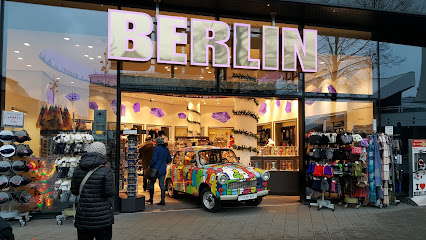
Pauls Chapter Mitte
Experience the charm of sustainable fashion at Pauls Chapter Mitte, Berlin's premier used clothing store, offering unique vintage finds in a stylish setting.
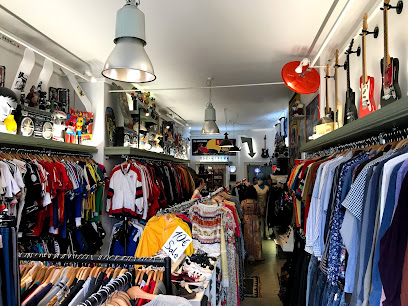
Essential bars & hidden hideouts
100 Gramm Bar
Discover the exhilarating nightlife of Berlin at 100 Gramm Bar, a prime destination for unique cocktails and vibrant social experiences.
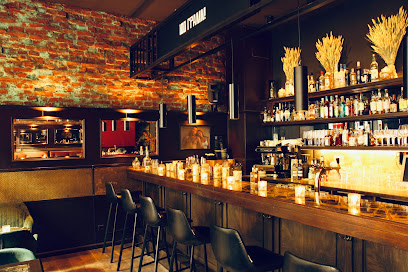
Knutschfleck Berlin
Discover the magic of Knutschfleck Berlin, where live music, delicious German cuisine, and vibrant nightlife come together for an unforgettable experience.
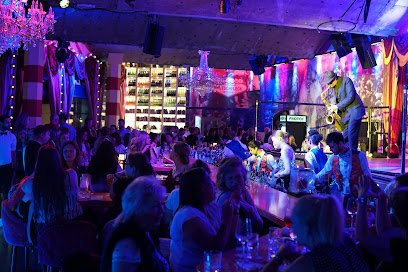
Newton Bar
Experience the vibrant nightlife of Berlin at Newton Bar, where stylish cocktails and a chic atmosphere await in Mitte.
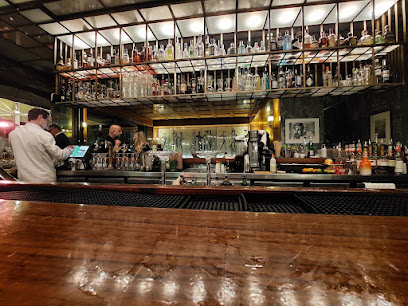
LIMONADIER Cocktailbar
Experience the vibrant nightlife of Berlin at LIMONADIER Cocktailbar, where unique cocktails and a cozy atmosphere await you.
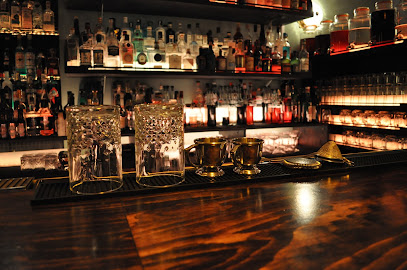
Sharlie Cheen Bar
Discover the vibrant nightlife at Sharlie Cheen Bar, Berlin's premier destination for creative cocktails and a lively atmosphere.
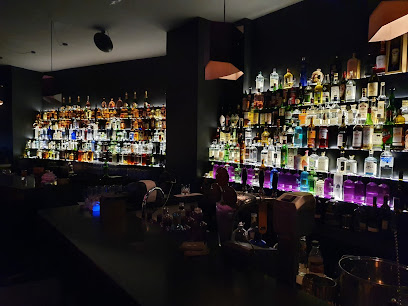
booze bar berlin
Experience the vibrant nightlife at Booze Bar Berlin, where innovative cocktails and a lively atmosphere await in the heart of Friedrichshain-Kreuzberg.
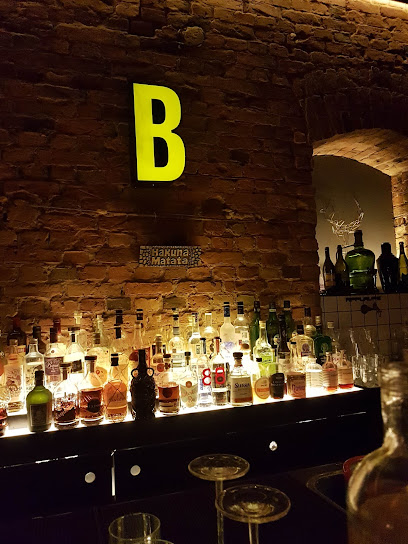
Green Door Bar
Discover the allure of Berlin's nightlife at Green Door Bar, where innovative cocktails and a cozy atmosphere await every visitor.
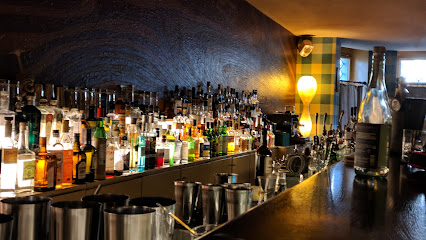
Stagger Lee
Experience the vibrant nightlife at Stagger Lee, a stylish cocktail bar in Berlin's Tempelhof-Schöneberg, offering innovative drinks and a lively atmosphere.
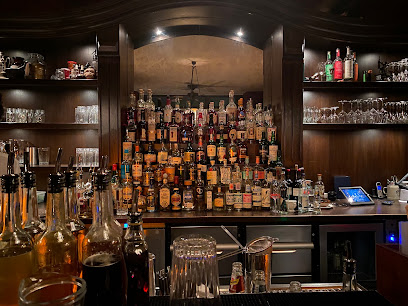
Zu mir oder zu dir
Discover the joyful spirit of Berlin nightlife at Zu mir oder zu dir, where creative cocktails and eclectic music await you.
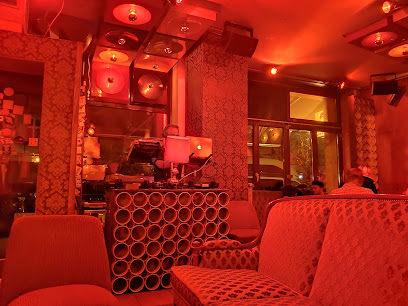
TheCoven Bar
Discover the enchanting atmosphere of The Coven Bar, Berlin's premier cocktail destination, where innovative drinks and vibrant nightlife converge.
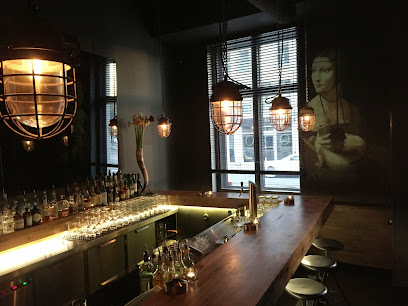
Buck and Breck
Discover Buck and Breck, Berlin's exclusive cocktail bar, where artistry meets flavor in an intimate setting.
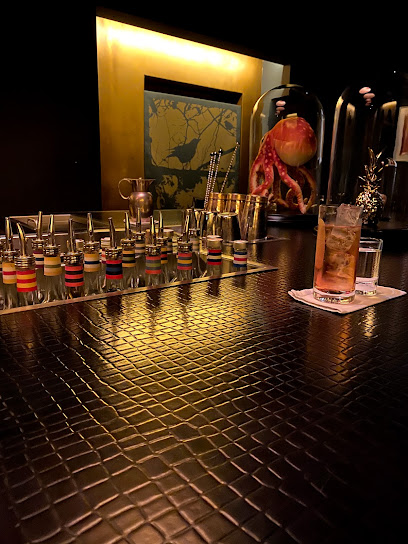
Posh Bar
Discover the elegance of Posh Bar in Berlin, where expertly crafted cocktails meet a chic atmosphere in the heart of the city's nightlife.
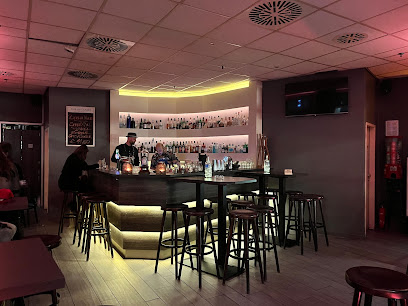
Fairytale Bar
Discover a world of creativity and delight at Fairytale Bar, the enchanting cocktail haven in Berlin's Pankow district.
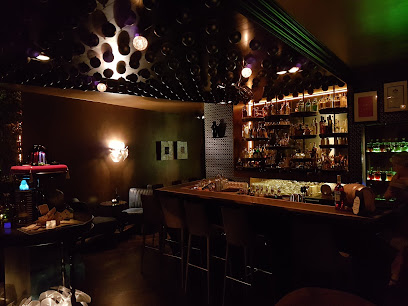
BESTE Bar
Discover the vibrant atmosphere of BESTE Bar in Berlin, where affordable drinks and a lively ambiance create the perfect night out.
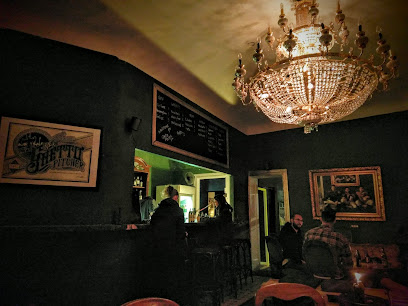
Local Phrases
-
- HelloHallo
[ha-lo] - GoodbyeAuf Wiedersehen
[auf vee-der-zay-en] - YesJa
[ya] - NoNein
[nine] - Please/You're welcomeBitte
[bit-te] - Thank youDanke
[dahn-kuh] - Excuse me/SorryEntschuldigung
[ent-shool-di-gung] - How are you?Wie geht es dir?
[vee gayt es deer] - Fine. And you?Gut. Und dir?
[goot oont deer] - Do you speak English?Sprichst du Englisch?
[shprikhst doo ang-lish] - I don't understandIch verstehe nicht
[ikh fer-shtay-uh nikht]
- HelloHallo
-
- I'd like to see the menu, pleaseIch möchte bitte die Speisekarte sehen
[ikh merkh-tuh bit-te dee shpy-zuh-kar-tuh zay-en] - I don't eat meatIch esse kein Fleisch
[ikh es-suh kine fli-sh] - Cheers!Prost!
[prost] - I would like to pay, pleaseIch möchte bitte zahlen
[ikh merkh-tuh bit-te tsah-len]
- I'd like to see the menu, pleaseIch möchte bitte die Speisekarte sehen
-
- Help!Hilfe!
[hil-feh] - Go away!Geh weg!
[geh vehk] - Call the Police!Rufen Sie die Polizei!
[roo-fen zee dee po-lee-tsai] - Call a doctor!Rufen Sie einen Arzt!
[roo-fen zee i-nen artsht] - I'm lostIch habe mich verirrt
[ikh hah-buh meesh feh-rirt] - I'm illIch bin krank
[ikh been krank]
- Help!Hilfe!
-
- I'd like to buy...Ich möchte ... kaufen
[ikh merkh-tuh ... kow-fen] - I'm just lookingIch schaue nur
[ikh shou-uh noor] - How much is it?Wie viel kostet es?
[vee feel kaw-stet es] - That's too expensiveDas ist zu teuer
[dahs ist tso toy-er] - Can you lower the price?Können Sie den Preis senken?
[kew-nen zee den prys zeng-ken]
- I'd like to buy...Ich möchte ... kaufen
-
- What time is it?Wie spät ist es?
[vee shpet ist es] - It's one o'clockEs ist ein Uhr
[es ist iyn oor] - Half past (10)Halb (zehn)
[halb (tsayn)] - MorningMorgen
[mohr-gen] - AfternoonNachmittag
[nahkh-mit-tahk] - EveningAbend
[ah-bent] - YesterdayGestern
[ges-tern] - TodayHeute
[hoi-te] - TomorrowMorgen
[mohr-gen] - 1Eins
[ines] - 2Zwei
[tsvai] - 3Drei
[dry] - 4Vier
[feer] - 5Fünf
[foontf] - 6Sechs
[zeks] - 7Sieben
[zee-ben] - 8Acht
[ahkt] - 9Neun
[noyn] - 10Zehn
[tsayn]
- What time is it?Wie spät ist es?
-
- Where's a/the...?Wo ist ein/der...?
[vo ist iyn/der] - What's the address?Was ist die Adresse?
[vas ist dee ah-dreh-suh] - Can you show me (on the map)?Können Sie mir zeigen (auf der Karte)?
[kew-nen zee meer tsai-gen (ouf der kar-te)] - When's the next (bus)?Wann kommt der nächste (Bus)?
[vann kumt der nek-stuh (boos)] - A ticket (to ....)Eine Fahrkarte (nach ....)
[i-ne fahr-kar-te (nahkh)]
- Where's a/the...?Wo ist ein/der...?
History of Berlin
-
Berlin traces its origins to the late 12th and early 13th centuries. The city was initially two separate towns, Berlin and Cölln, situated on either side of the Spree River. These towns were formally merged in 1432 and became known as Berlin. The city's early growth was driven by its strategic position along trade routes and its role as a center for commerce and governance.
-
Berlin became the capital of the Kingdom of Prussia in 1701 under the rule of Frederick I. The city flourished as a political, cultural, and economic hub. The 18th century saw significant urban development, including the construction of the Brandenburg Gate and the establishment of numerous parks and palaces.
-
In the 19th century, Berlin experienced rapid industrial growth, transforming into one of Europe's leading industrial cities. The expansion of the railway network and the establishment of large manufacturing plants attracted a diverse workforce, leading to a significant increase in population. This period also saw the emergence of Berlin as a center for arts, science, and education.
-
Following Germany's defeat in World War I, Berlin became the capital of the Weimar Republic, a period marked by political instability and cultural innovation. The city was a hotspot for avant-garde art, theater, and cabaret. The economic hardship and political turmoil of the era laid the groundwork for the rise of the Nazi Party.
-
Berlin was a focal point of Nazi power after Adolf Hitler became Chancellor in 1933. The city underwent extensive architectural changes and was the site of numerous Nazi rallies and events. During World War II, Berlin suffered significant damage from Allied bombings and the Battle of Berlin in 1945, leading to its eventual capture by Soviet forces.
-
After World War II, Berlin was divided into four sectors controlled by the Allies: the United States, the United Kingdom, France, and the Soviet Union. In 1949, the city was split into East Berlin, the capital of East Germany, and West Berlin, an enclave of West Germany. The Berlin Wall, erected in 1961, became a symbol of the Cold War, physically and ideologically dividing the city until its fall in 1989.
-
Following the fall of the Berlin Wall on November 9, 1989, and the subsequent reunification of Germany in 1990, Berlin became the capital of a reunified country. The city has since undergone extensive reconstruction and development, emerging as a vibrant and diverse metropolis. Modern Berlin is renowned for its rich cultural scene, innovative architecture, and historical landmarks.
Berlin Essentials
-
Berlin is easily accessible via multiple modes of transportation. The city is served by two major international airports: Berlin Brandenburg Airport (BER) and Berlin Tegel Airport (TXL). Both airports have frequent connections to various international and domestic destinations. Additionally, Berlin is well-connected by train, with multiple daily services from major European cities via Deutsche Bahn. The city is also accessible by bus and car, with a network of highways linking it to the rest of Germany and Europe.
-
Berlin has an extensive and efficient public transportation system, including U-Bahn (underground), S-Bahn (suburban trains), trams, and buses. The BVG (Berliner Verkehrsbetriebe) operates most of the public transport services. Tickets are valid across all modes of transport and can be purchased at stations, online, or via mobile apps. For those preferring cycling, Berlin is a bike-friendly city with numerous bike rental options and dedicated cycling lanes. Taxis and rideshare services like Uber are also readily available.
-
The official currency in Berlin is the Euro (EUR). Credit and debit cards are widely accepted in most hotels, restaurants, and shops. However, it is advisable to carry some cash for smaller establishments, markets, and public transport ticket machines. ATMs are readily available throughout the city, and currency exchange services can be found at airports, major train stations, and in the city center.
-
Berlin is generally considered a safe city for tourists. However, like any large city, it is important to stay vigilant. Pickpocketing can be an issue in crowded areas such as Alexanderplatz, Zoologischer Garten, and major tourist attractions like the Brandenburg Gate and Museum Island. Avoid poorly lit areas at night and be cautious in neighborhoods like Kottbusser Tor and Görlitzer Park, which have higher crime rates. Always keep an eye on your belongings and avoid displaying valuables openly.
-
In case of emergency, dial 112 for medical emergencies and 110 for police assistance. Berlin has well-equipped hospitals and emergency services. Pharmacies (Apotheken) are widely available, and some operate 24/7. It is recommended to have travel insurance that covers medical emergencies. The English-speaking tourist police can be reached at +49 30 4664 4664 for assistance with any issues.
-
Fashion: Do dress comfortably and practically, as Berliners have a casual yet stylish approach to fashion. Avoid overly formal attire unless attending a special event. Religion: Do respect religious sites and traditions. When visiting churches or synagogues, dress modestly and be quiet. Public Transport: Do validate your ticket before boarding. Don't evade fares, as fines are hefty. Greetings: Do greet people with a handshake and maintain eye contact. Don't use overly familiar gestures unless you know the person well. Eating & Drinking: Do try local foods like currywurst and doner kebabs. Don't tip excessively; rounding up the bill or leaving 5-10% is sufficient.
-
To experience Berlin like a local, explore the diverse neighborhoods such as Kreuzberg, Neukölln, and Prenzlauer Berg. Visit the weekly markets like the Turkish Market at Maybachufer for fresh produce and unique finds. Take a stroll along the Landwehr Canal or relax in one of Berlin’s many parks like Tempelhofer Feld or Tiergarten. Engage with locals at beer gardens or join a Späti (late-night convenience store) crawl for a true Berlin experience. Don’t miss the vibrant street art scene in areas like the East Side Gallery and RAW Gelände.
Nearby Cities to Berlin
-
Things To Do in Potsdam
-
Things To Do in Szczecin
-
Things To Do in Leipzig
-
Things To Do in Dresden
-
Things To Do in Rostock
-
Things To Do in Lubeck
-
Things To Do in Erfurt
-
Things To Do in Poznan
-
Things To Do in Hannover
-
Things To Do in Hamburg
-
Things To Do in Karlovy Vary
-
Things To Do in Prague
-
Things To Do in Wroclaw
-
Things To Do in Hradec Králové
-
Things To Do in Plzeň


















